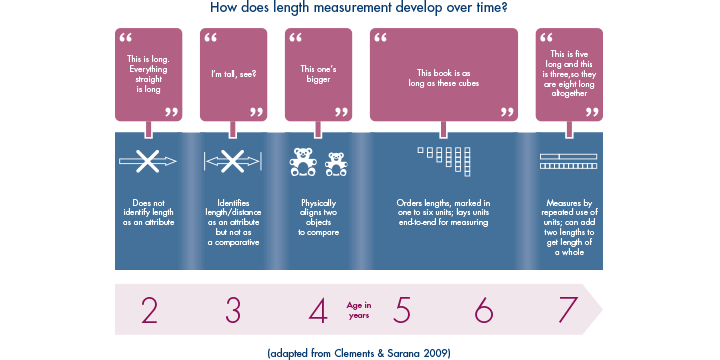28 June 2018

How might research help in the effective teaching of early measurement?
- The concept of early measurement is complex and important but not currently as well researched as number
- At least four important ideas are embedded in the overall concept of measurement
- The development of mass, volume and angle follow approximately the same structure as length
- Pupils must begin with a thorough understanding of and ability to use language to describe physical attributes of objects
- Attention should be drawn to the idea of identical units, the size of units versus the quantity needed, and actions that conserve the measure
- Pupils should then design, make and use their own tools to read off measurements, considering the need for a standard unit
- Benchmark units such as centimetres, metres, kilograms, litres and right angles should be introduced and pupils should use them to make sensible estimates
View Espresso